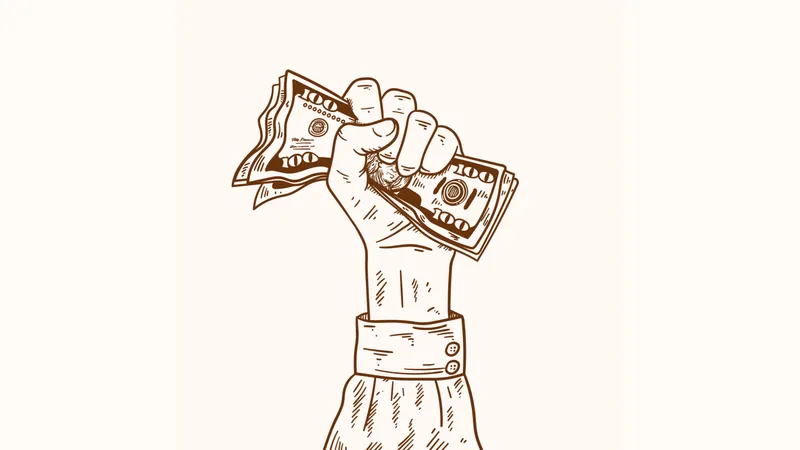Money As Relationship And The Path To Financial Integrity


Not just about purchasing power, but about priorities, self-worth, and how we relate to the world. If our bank statements are autobiographies, then financial integrity isn’t a skill. It’s a relationship.
In 2025, financial behavior has emerged as one of the clearest mirrors of psychological wellbeing. According to the latest New Era Behavioral Health Report, over 72% of working professionals now link money stress directly to their emotional state. And 43% of U.S. adults say money negatively affects their mental health (Bankrate, 2025). But the solution isn’t more budgeting apps. It is rethinking the entire relationship.
Why Financial Integrity Begins With Awareness
When people talk about "financial integrity," it often sounds clinical - like something you’d track on a spreadsheet. In reality, it begins in moments that are deeply personal: the guilt after late-night purchases, the quiet avoidance of opening banking apps, the resistance to conversations about salary. These aren’t money issues. They are narrative issues.
We have been trained to treat money as a resource. But what if we treated it as a relationship: alive, responsive, shaped by attention and care? What if money, more than any app or spreadsheet, functioned as an emotional mirror - reflecting our inner stories, fears, and hopes?
Financial integrity, then, is not about strict limits. It is about coherence. It means spending in ways that reflect your actual values - not aspirational ones, not inherited ones. It is when the way you handle money feels aligned with who you want to be.
What Undermines Financial Integrity?
Before you can build financial integrity, you need to understand what’s eroding it. And often, it is not bad math - it is bad stories.
Cultural myths are among the most powerful disruptors.
“More is better.”
“Money equals security.”
“Wealth reflects worth.”
These narratives run deep, shaping how we spend, save, and even self-evaluate. They push us to define success externally and tie our value to accumulation, not alignment.
Shame is another silent driver. For many, money is laced with emotion: guilt over debt, embarrassment about not knowing enough, fear of being judged for either having too little - or too much. These unspoken tensions keep us from looking clearly at our finances and making changes.
And then there is comparison. In the era of public lifestyle broadcasting, we rarely measure our financial life against our values - we measure it against someone else’s feed. It is not just keeping up with the Joneses; it is keeping up with an algorithm. And the cost is quiet: overspending, under-saving, and chronic self-doubt.
Gen Z’s so-called “doom spending” offers a glimpse into how generational stress intersects with financial behavior. Faced with climate anxiety, economic uncertainty, and existential dread, many younger consumers are choosing to spend more in the short term - seeking control, pleasure, or distraction.
Financial integrity begins when we pause to rewrite these scripts - replacing them not with scarcity or stoicism, but with sovereignty.
To begin that shift, three small but powerful experiments can help reframe your relationship to money:
1. Keep a 7-Day Money Journal
Document each transaction - not just what you spent, but why.
What were you feeling?
What did you hope the purchase would do?
Was it joy, obligation, avoidance, guilt?
Patterns emerge quickly, and they rarely have to do with lack of knowledge.
2. Try “Silent Spending”
Inspired by behavioral finance research, this practice asks you to pause before any transaction. Just three seconds. This moment of stillness interrupts autopilot behavior, brings awareness to emotional triggers, and helps create spaciousness between impulse and action.
3. Align Budgets with Values
Before the next month begins, list your top five values: creativity, community, learning, sustainability, or whatever feels honest. Then audit your projected spending:
How much supports those values?
This is not a budgeting hack.
It i’s a recalibration of purpose.
Money as Leadership Expression
For founders, solopreneurs, and conscious leaders, financial integrity goes beyond personal benefit - it is a leadership signal. When you build clarity and discipline in your finances, you model responsibility, transparency, and inner steadiness.
A growing number of organizations now view financial wellbeing as core to leadership culture. Not because of salaries, but because of what money reveals. It reveals where leaders prioritize long-term thinking. Where they invest in rest. Where they avoid or confront difficult truths.
How you relate to money is how you relate to power. And how you relate to power is how you lead.
A New Financial Culture
The economy of 2025 is turbulent by design. Inflation, automation, and digital currencies challenge familiar logic. But that does not mean surrender. It means becoming the kind of leader who remains grounded even when external systems shake. Financial integrity offers that grounding.
This is not about deprivation. It is about deliberate attention. The more you relate to money as a living relationship - worthy of reflection, care, and boundaries - the more resilient and creative you become.
Because ultimately, you are not managing money. You are building trust with yourself. One transaction at a time.
Ready to Realign?
Join The EcoLeader Clarity Session – a guided 1:1 experience to explore your values, unpack your financial patterns, and reconnect with money as a source of empowerment, not exhaustion.

